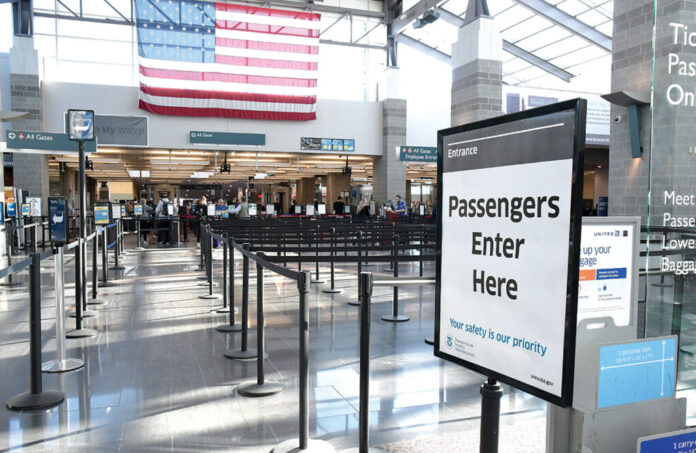
WARWICK – While T.F. Green Airport has seen passenger traffic slashed and flights suspended, cargo activity is up in the wake of the new coronavirus, according to information shared by the R.I. Airport Corp.
Roughly 2.3 million pounds of cargo and freight went in or out of the state’s main airport in March and April – 23% more than the volume during those months last year. While cargo volume was trending upward prior to the onset of the pandemic – an 8% increase in January and 16% in February compared to the same months in the prior year – R.I. Airport Corp. CEO and President Iftikhar Ahmad attributed the increase to the coronavirus crisis.
“Given the essential role that T.F. Green Airport has played in keeping the state’s delivery supply chain open during the COVID-19 crisis, it is no surprise that the volume of cargo deliveries has increased 23% in both March and April,” Ahmad said in a statement. “The Rhode Island Airport Corporation is pleased to see a continued upward trend in cargo volume that began four months ago in January of 2020, and we are proud of how all essential workers at the airport have helped keep Rhode Island well supplied during a time of crisis.”
The news comes after the airport reported a whopping 96% reduction in daily passenger traffic in early May, which coupled with Delta Air Lines’ decision to suspend all flights through at least September, has dealt a devastating blow. And under the current guidelines for the $58 billion federal airline bailout, more cuts to service could be coming, since the minimum service requirement set by the U.S. Department of Transportation allows airlines receiving bailout money to consolidate flights between Green and Logan International Airport in Boston.
In a prior interview with PBN, Ahmad said he was not worried about the Airport Corp.’s financial solvency – it operates with substantial liquidity – but feared the impact of service cuts to the state’s economy.
Nancy Lavin is a PBN staff writer. You may reach her at Lavin@PBN.com.












